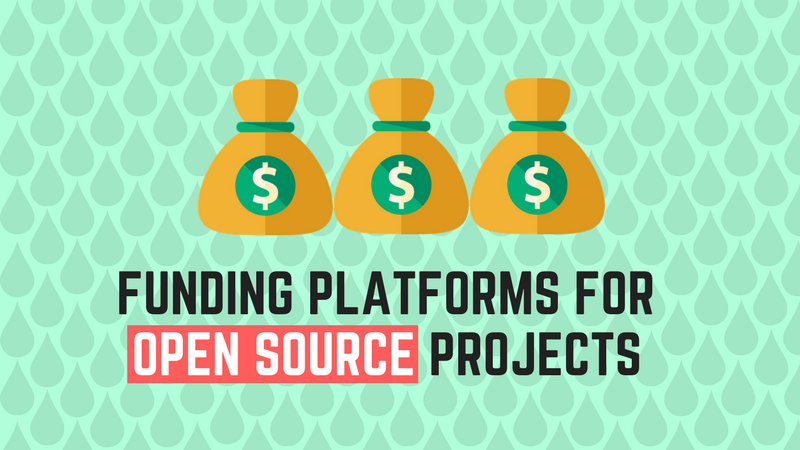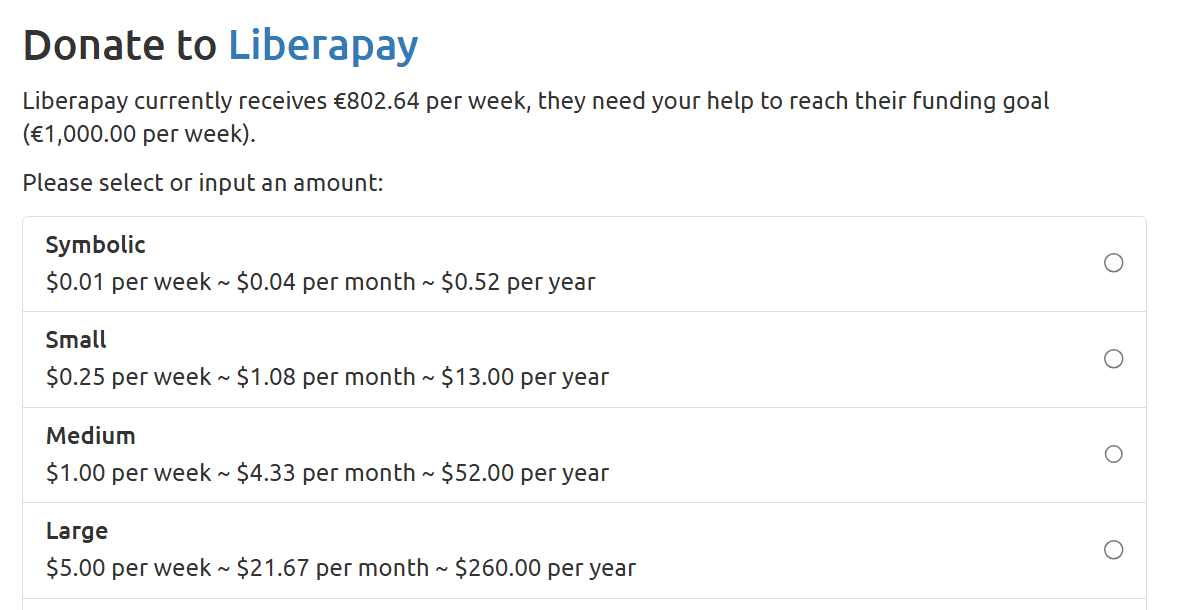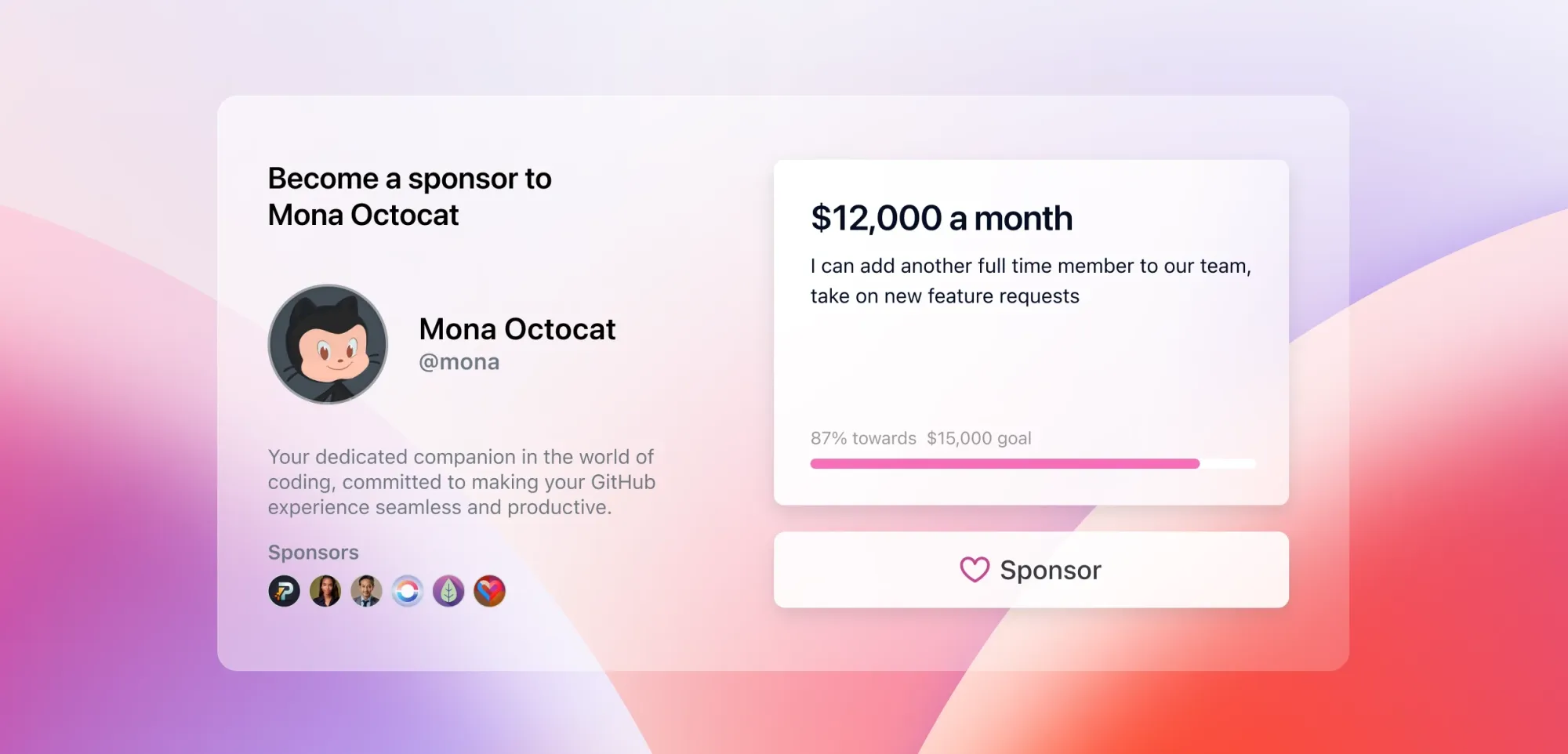
Financial support is one of the many ways to help Linux and Open Source community. This is why you see “Donate” option on the websites of most open-source projects.
While the big corporations have the necessary funding and resources, most open source projects are developed by individuals in their spare time. However, it does require one’s efforts, time and probably includes some overhead costs too. Monetary supports surely help drive the project development.
If you would like to support open source projects financially, let me show you some platforms dedicated to open source and/or Linux.
Funding platforms for Open Source projects

Just to clarify, we are not associated with any of the funding platforms mentioned here.
1. Liberapay

Liberapay is a non-profit, open source organization that helps in a periodic donation to a project. You can create an account as a contributor and ask the people who would really like to help (usually the consumer of your products) to donate.
To receive a donation, you will have to create an account on Liberapay, brief what you do and about your project, reasons for asking for the donation and what will be done with the money you receive.
For someone who would like to donate, they would have to add money to their accounts and set up a period for payment that can be weekly, monthly or yearly to someone. There’s a mail triggered when there is not much left to donate.
The currency supported are dollars and Euro as of now, and you can always put up a badge on GitHub, your Twitter profile or website for a donation.
2. Open Collective
Open Collective is another popular funding initiative where a person who is willing to receive the donation for the work he is doing in the open source world can create a page. Anyone can submit the expense reports for the projects they are working on. A contributor can add money to their account and pay the maintainer.
The complete process is transparent and everyone can track whoever is associated with Open Collective. The contributions are visible along with the unpaid expenses. There is also the option to contribute on a recurring basis.
Open Collective currently has thousands of collectives being backed up by thousands of users.
The fact that it is transparent, and you know what you are contributing to, drives more accountability. Some common examples of collective include hosting costs, community maintenance, travel expenses etc.
Though Open Collective keeps 10% of all the transactions, it is still a nice way to get your expenses covered in the process of contributing towards an open-source project.
3. Tidelift
Tidelift is an impressive enterprise-focused solution, now as a part of Sonar, a code quality and security focused company.
Tidelift basically helps enterprises by providing a managed open-source subscription for a range of open-source tools that companies rely on. Normally, if you’re an enterprise, you would have to appoint a separate team to maintain/manage the open-source technologies you use. But, with Tidelift, you hire the developers/maintainers of the open-source projects indirectly to get involved to manage it for you.
This way, the developers get paid for improving their tools, and you get the necessary support as well. So, it’s a win-win.
Unlike some options, you cannot directly interact with the service separately. If your organisation is using Sonar, they can utilise Tidelift's abilities.
4. GitHub Sponsors

GitHub Sponsors is a programme by GitHub that allows users to financially support developers and open-source maintainers directly through the platform. It integrates with a developer’s profile and repositories, letting users contribute via monthly recurring payments.
Sponsors can choose from tiered support levels if offered, with optional rewards like acknowledgements or early feature previews. Projects like elementaryOS utilise this to get funding and give early access to builds.
Numerous projects are already on GitHub. So, it makes sense for projects to use this over many others.
5. Patreon, Buy Me a Coffee, and Ko-Fi
Patreon, Ko-Fi, and Buy me a coffee are membership and donation platforms where creators can earn recurring income by offering exclusive perks to subscribers or fans.
While these are not tailored specifically for open source, several prominent projects—such as elementary OS and Krita and developers, use these platform to fund ongoing development.
Creators can set multiple tiers with varying benefits like development updates, voting rights on features, or access to private community spaces. The processing fee and charges vary, some charge more and some may take a minimal cut. One should check the documentation before deciding on a platform.
Final Words
Think Free Speech, not Free Beer. Your small contribution to a project can help it sustain in the long run. For the developers, the above platforms can provide a good way to cover up their expenses.
It's FOSS turns 13! 13 years of helping people use Linux ❤️
And we need your help to go on for 13 more years. Support us with a Plus membership and enjoy an ad-free reading experience and get a Linux eBook for free.
To celebrate 13 years of It's FOSS, we have a lifetime membership option with reduced pricing of just $76. This is valid until 25th June only.
If you ever wanted to appreciate our work with Plus membership but didn't like the recurring subscription, this is your chance 😃

